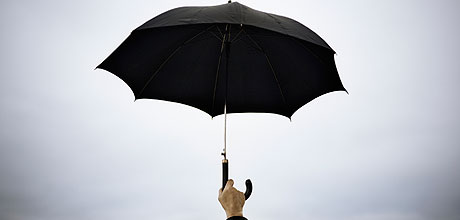While most people are moaning about all the rain experienced during the summer holiday period, farmers are out doing a rain dance in their gumboots.
The Bay of Plenty had more than its fair share of rain during the festive season, putting a dampener on many holiday plans – but it is not doom and gloom for everyone.
'Someone told me the other day that you can tell who the farmers are by the smiles on their faces and the holiday makers by the scowls,” says Bay of Plenty Federated Farmers president John Scrimegeour.
John, a dairy farmer at Pongakawa, says he's had more than 200ml of rain during the Christmas period.
The extra rainfall at this time means farmers can start the year in a good position.
'It means they're able to feed their stock well right through into summer,” says John.
'There will be quite a bit of late hay and silage harvested – extra – that they'd normally not be able to do;
'And it just relieves the pressure of thinking about how long they're going to be able to keep feeding stock well and do they have to reduce stock – send stock to the slaughter – just to reduce pressure on feed supplies.”
John says dairy farmers should be able to milk later into the autumn rather than drying off early due to a shortage of feed.
That will mean more milk in the vats, more money in the bank and potentially farmers will be spending more too.
'We would expect most people to carry on (milking) till April and May this year at this rate,” says John.
'Not so much last year, but the previous three or four years, there were Bay of Plenty farmers drying off in February onwards.”
It can still get dry in February and March, so John says they are not counting their chickens just yet, but with the extra feed on farm and extra supplements, it should provide enough feed to carry the cows through.
Dairy farm owner Bruce MacDougall, up the road at Paengaroa, has lived and farmed on the land all his life.
'I don't remember a year wetter than this one and I'm in my 70s.
'I do remember wet summers, but not like this.”
Bruce says the continuous rain has made the grass grow significantly and there is a lot more red clover than normal.
His sharemilker's production is up and Bruce says the extra cover will ensure the cows are in good condition for next year.
'The last three years, production hasn't been as good as it would be. It's good to see it in the other direction.
'It's really good for the country as a whole. If we didn't have the dairying, I don't know where we'd be.
'It's been an amazing spell.”
Bruce says with the negative impact that Psa is having on the economy, the rain is a saviour.
'It's just as well for Fonterra and farming at the moment.”
Bruce put in an irrigation system 18 years ago after suffering from several bad droughts.
'We have very light soil which dries out quickly, and we had quite a few bad years so we decided we either had to move or put in irrigation.”
Bruce says the electricity to run the irrigation is expensive, but 'it takes a lot of the worry away”.
'When it gets dry, you don't know how long it's going to stay dry for. With irrigating, you know how much the power bill is going to be.”
The excessive amount of rain so far this summer means a saving in the power bill.
The irrigation from the Waitahanui Stream usually starts about October and goes through summer, but Bruce says this season they stopped just before Christmas.
'The rain has been a big saving – nothing beats rain.
'We're lucky on the hills, people in the low country – a lot are probably too wet; what's good for one isn't good for another.”
That's the nature of farming says Bruce.



0 comments
Leave a Comment
You must be logged in to make a comment.